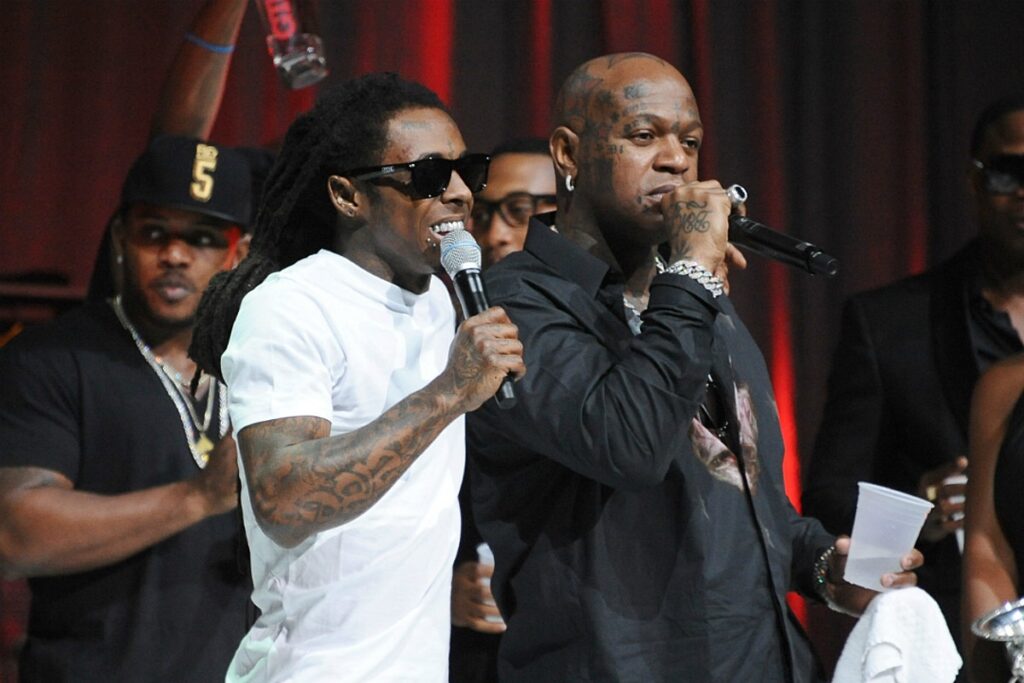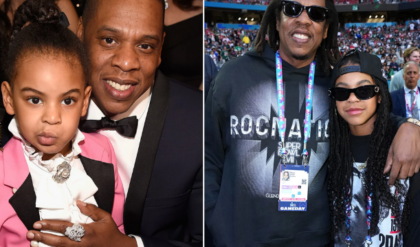A successful rapper from the past two decades is Lil Wayne. Since his 17th birthday, he has sold 120 M albums as a hip hop star.
Wayne is lauded for his technical skill, lucid language, imaginative metaphors, and prolific creation. Grammy-winning Tha Carter III is a 2000s classic.
Wayne has never re ve aled a technique for writing songs like them, but his career and interviews re ve al his success factors.
#1. Read VoracÖouly
Language and astute references characterize Lil Wayne’s lyrics. His lyrics use metaphors and creative language. Where does language richness come from?
Wayne has pushed reading for vocabulary and topics for years. He read one book a day as a teen to rap.
Wayne likes popular books, historical biographies, and classic novels. William Shakespeare and Edgar Allen Poe inspire him.
Wayne references several subjects in his art due to his considerable reading. His lyrics show his writing style.
Authors should read much to improve wordplay and become poetry like Wayne. Read genre-spanning poetry, new art, and novels. Note clever wordplay or fascinating metaphors. Applications play music and display lyrics. Increasing your vocabulary and reference library improves creative writing.
2. Enjoy Discover Music
Little Wayne is known for rapping, yet his music goes beyond hip hop. He was influenced by rock, country, jazz, and opera. He has a distinctive voice and production.
Wayne said he wan t.ed to add grunge and rock to his songs after relocating to Nashville. RebÖrth is the resulting music CD. Wayne plays jazz improvisation and country narrative in other songs.
Wayne discourages budding songwriters from genre-specializing. Find inspiration in mainstream, independent, and world music. Consider using your emotions to compose music from songs you like.
Rapping discusses society from a lived perspective, drawing from the nation’s narrative. If you want to express raw passion, compare lyrical rap and opera. Do not fe ar genre blending and musical variation. You’ll sound more unique with songwriting influence.
3. Honesty and
With his subtle wordplay and grammatical complexity, LÖl Wayne excels in exquisite lyrics. Wayne became famous for his street-inspired New Orleans urban life documentaries. Music was his outlet for feelings and life experiences.

Little Wayne songs explore isolation, regret, heartbreak, fe a r, and overcompensation. Augmentation, addition, and deprecation were explained vulnerablely. Some songs are lighthearted and youthful. The balance of heavy and light items becomes artistic.
Wayne advised writing about your pleasant and terrible sentiments and experiences in an interview. Well-written demands emotional connection. Do not disguise your ideas or unfavorable issues.
Honest lyrics highlight your talent. Show basic human realities with realistic descriptions and scenarios. Know your talents and shortcomings. Your unique perspective and life experience make you a terrific composer.
#4. Experiment and Break Rules
Wayne’s music is unconventional. He experiments and takes risks. Wayne innovates music by breaching rules and expectations.
Wayne’s music excels. He pioneered stylistic acoustics beyond minor tweaks. This method was popularized by Lollpop. He tried melodic, rhythmic, rhymed, and funny vocals.
Bigger Wayne singles feature innovative structures. Music like “A Mi lli on” uses repetitive rhyming over captivating noises. Wayne changes pace in “6 Foot 7 Foot”. Jazz’s irregular rhythms suit him more than regimented beats.
Wayne supports bre ak ing traditions to develop language and art. Instead of following orders, explore. Get creative with vocal effects and apply intuition. Arrange songs using lyrics, not songwriting templates. Being creative can set you apart. Greatness comes from coloring outside the lines and placing it safely. Keep that mindset.
Constant Practice
Lil Wayne has always valued ethics and artistry. Rapped at 8 and released his first record at 17, demonstrating potential.
In this interview, Wayne explains his freestyle, writing, recoding, and performance efforts to become a great rapper. His specialty is marathons, polishing lyrics and punchlines.
Wayne says good writing takes dedication. Waiting for inspiration is insufficient. Exercise strengthens creativity. Schedule daily writing despite lack of motivation. Learn from failed songs. Wayne suggests writing 100 bars to obtain 8 good ones, but this is improving.
Wayne suggests low-budget authors stay sharp. Record demos at home, on your phone, or anywhere. Put your song online for feedback. Learn from other artists. Create content, brand yourself, and grow as an artist with technology. Your art will improve with dedication.
6. Speak Up
In interviews, Wayne credits his pioneering influence in modern rap, from lyrics to voice effects. However, he believes copying his style will fail. Wayne advises young artists to discover their own stories, perspectives, and talents.
Find your songwriting voice. What unique experiences can only you share? Growing up in a noisy area? Which best describes your morals? Vocal tone and rhythm distinguish you.
Discover your artistic voice by examining your life, values, and culture. Target search refinement, not trends. Artists that copy Wayne are forgotten, while those with their own style survive. Trust your creativity and express it without apology.

Maintain Trends
Little Wayne re ma ins important in hip hop, where new forms and creativity emerge, after over two decades. He did it how? Prioritizing own art before fashion.
Wayne advised against focusing on current events for rapid relief. Changing trends rarely keep jobs. Your new style will be outdated.
Wayne writes songs about his beliefs, not current events. Be yourself in your work and your audience will respond.
Find your artistic voice. Improve your voice and skills alone. Wayne agrees success takes time. Carter III was built by kids. Stay patient. Though losses will occur, it will grow.
8. Assess Yourself
Little Wayne emphasizes self-criticism and excellence throughout his interview. The study motivates him to improve his lyrics, punchlines, and voice.
Wayne writes scientifically. He evaluates his work and improves gradually for best results. Authors adjust word choice, cadences, and delivery to fix failed poems and verses.
Wayne recommends establishing your inner critic to improve writing. Respect yourself and listen carefully. Are some lyrics and flows distracting? Rhyme, storytelling, and voice inflection impact where?
Motivate yourself to improve. Be exceptional, not mediocre. Review and refine your music till you’re happy, not fans or critics. Uncompromising artisan passion distinguishes you.
News
Behind the success of Rap King Eminem’s first recordings, making fans admire
Behind the success of Rap King Eminem’s first recordings, making fans admire Eminem stands as one of the most commercially triumphant rap artists in history, boasting a staggering 220 million records sold worldwide. His ascent from destitution and anonymity to…
Rick Ross owns a collection of iconic blue supercars that remind him of his late father ‘He always wanted to own a blue classic’
This vintage blue supercar holds a special place in Rick Ross’s heart because it evokes memories of his childhood, particularly the moments he spent with his father. The vintage blue supercar undergoes a transformation that transcends its utilitarian purpose, assuming…
Rick Ross bought a trendy colored Rolls-Royce Cullinan supercar with customized accessories for $1M on the occasion of his 48th birthday
In a grand celebration of his 48th birthday, hip-hop mogul Rick Ross has once again proven that he knows how to make a statement, as he recently splurged on a breathtakingly unique Rolls-Royce Cullinan supercar, complete with personalized accessories. The…
Rick Ross granted his mother’s wish by owning a private plane to fly her around the world
In a heartwarming gesture, hip-hop magnate Rick Ross has made his mother’s dreams take flight by gifting her a private plane, allowing her to traverse the globe in unparalleled comfort and style. The larger-than-life rapper, known for his extravagant lifestyle,…
Rick Ross knows his son loves to explore the ocean and has a dream of being a ‘sealogist’ so he rents a submarine for $650K/hour to support him. ‘I want you to pursue your passion’
Rick Ross, the celebrated rapper and entrepreneur, recently made headlines with a remarkable gesture of support for his son’s dreams. Knowing his son’s love for exploring the ocean and aspiring to become a “sealogist,” Ross spared no expense in renting…
Bored of the warm weather, Rick Ross flies a private plane to the North Pole for 7 days so he can wear fur coats, drink hоt chocolate, ski and meet polar bears
Rick Ross, the larger-than-life hip-hop mogul known for his lavish lifestyle, has once again made headlines with his latest escapade: a private plane trip to the North Pole. Tired of the sweltering heat, Ross embarked on a seven-day adventure to…
End of content
No more pages to load











